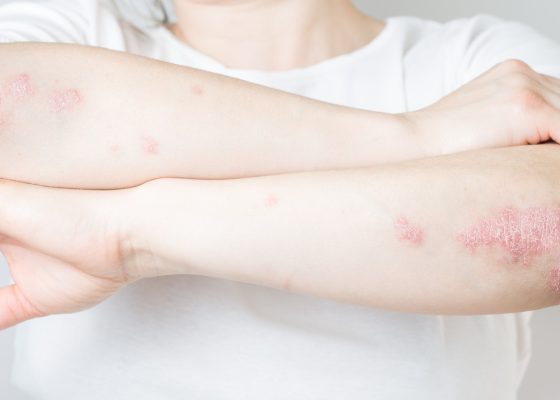Changes to the family structure in the first eight years of a child’s life could significantly increase their risk of developing psoriasis.
Early childhood stress may triple the risk of developing psoriasis later in life, according to research of the All Babies in Southeast Sweden prospective birth cohort.
A new family structure such as separation, divorce, new adults or new step siblings was the type of stress associated with the greatest increase in risk.
It was most significant amongst children who underwent this stress in the first year of life, with more than a fourfold increase compared to children who did not experience a change in family structure.
Children experiencing conflict at home before the age of one also had a threefold increase in their risk of later psoriasis.
More than 16,000 children born between 1997 and 1999 were included in the analysis. Parents answered questionnaires about their children at ages one, three, five and eight, and psoriasis diagnoses were identified via the Swedish National Patient Register.
While the check-ins between ages three to eight did not individually show a strong association between new family structure and psoriasis, the merged results across all age questionnaires did.
Researchers concluded that the psychological stress of a new family structure within the first eight years of life overall was strongly associated with an increased risk of psoriasis (OR = 3.40, 95% CI = 1.06–9.42, p = .04).
Conflict at home continued to be associated with a threefold increase of risk across the eight years.
Some environmental factors had previously been indicated in psoriasis, such as nutrition, smoking, alcohol and lithium. Stressful life factors had been associated with the development of some autoimmune diseases such as Sjögrens syndrome, MS and alopecia.
Previous research of the All Babies in Southeast Sweden cohort had shown that stressful life events early on could cause the development of diabetes-related autoantibodies and increase the risk of clinically manifest type one diabetes.
Researchers concluded that younger children appear more vulnerable to the immunomodulatory effects of stressful life events than older children and adults.
The team had previously found that breastfeeding may protect against psoriasis, and a potential contributing mechanism could be psychological contact, fostering security and reducing stress.
They concluded that there existed no simple advice to avoid stressful life events, but that clinicians should provide all possible support to families with young children to reduce their risk of psoriasis and other conditions associated with stressful life events.





